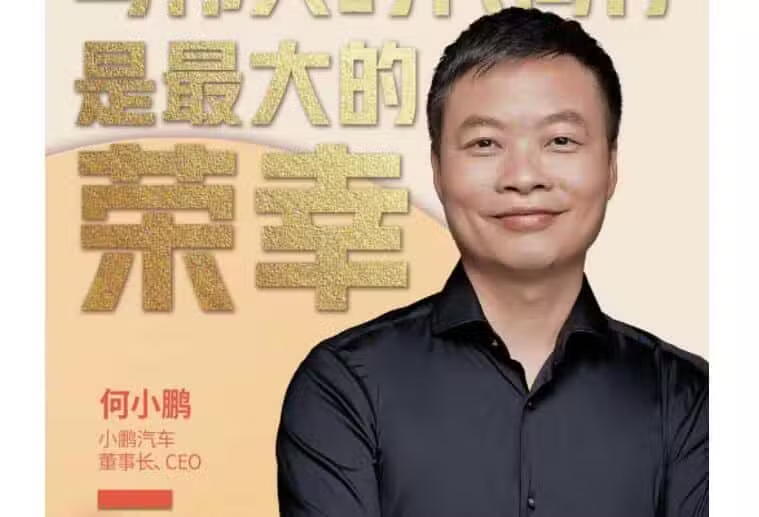Several Chinese tech giants have joined the car-making bandwagon so far this year, and that's not a cause for concern, but rather a good thing in the eyes of executives at the new car-making powerhouses.
Leading companies in the tech industry are starting to join the smart car industry, which of course means unprecedentedly stiff competition for Xpeng, said He Xiaopeng, the company's chairman and CEO, in an article published Tuesday on iceo.com.

(Source: iceo.com)
But to put it another way, Xpeng is competing with the strongest competitors for smart car market share, and while the competition is fiercer, it will actually be happier to be in the middle of it, he said.
"Because the entry of these companies will accelerate the pie getting bigger, accelerate the smart experience getting stronger, and ultimately can accelerate the change or even disrupt the original model and system of the automotive industry," he wrote.
According to the article, the first wave of start-ups of new car-making forces began in 2014, with as many as 300 Chinese car companies of their own brand taking turns in the market with a bang.
By now, in fact, the spread of electrification and intelligence in cars is accelerating across the board, he claimed.
In terms of new sales in first-tier cities represented by Beijing, Shanghai, Guangzhou, Shenzhen and Hangzhou, electric vehicles accounted for only 6 percent to 8 percent in the third quarter of last year and have grown to about 20 percent in the first quarter of 2021, he noted.
The momentum of EV sales growth in Tier 1 cities is almost a jump change, he wrote.
"I have told William Li, founder and CEO of Nio, that we are all sitting at the poker table and are all inside the qualifying rounds, not yet in the elimination rounds," he wrote.
This year Xpeng's deliveries have been among the top 10 new energy vehicle brands, which is a "qualifying round," He said.
He also said that in the next 4 to 5 years there will likely be only 5 to 6 companies that can stay ahead of the pack, and they will have more than 80 percent of the sales in one or more segments, and that's when the real " elimination rounds" begins.
These views are similar to Li's. "Whether or not Nio will qualify for the final round, we don't know yet, but some conclusions will start to emerge by 2024 or so," he said in early May.
In Li's view, competition in China's electric vehicle industry is an endless game, and there is no day when Nio can relax.
The industry is now increasingly crowded in China, with a slew of tech companies, including Baidu and Xiaomi, announcing their entry into the car-making space, which is set to intensify competition.
Li believes that for Chinese entrepreneurs, they will face many competitors in all industries. "We welcome more competition, which is positive and reflects the dynamism of the industry," he claimed.
There may be some overheating in the industry, but the gathering of more talent and capital is good for the industry, he claimed.